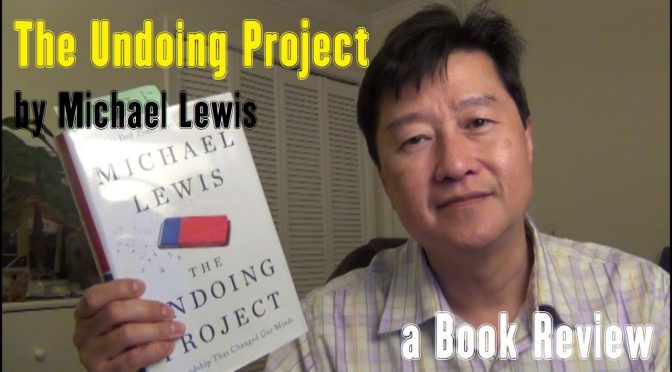This is one of the great books written by Michael Lewis, one of my favorite authors. This book covers the friendship between Daniel Kahneman and Amos Tversky, who won the Nobel Prize in Economics on the theory of the mind. To truly appreciate the book, you probably wanted to first read their theory, which you can read a summary from my book review of “Thinking Fast and Slow” here.
In the first chapter of the book, the author tried to bridge the Moneyball book to this book using an NBA analogy and the story of Daryl Morey, the general manager of the Houston Rockets. The objective was to emphasize the work of human judgement biases studied by the two Nobel Prize winners, the two central characters of the book. I was a little confused in the beginning, thinking the book was a sequel to “Moneyball.” But it wasn’t. The book went into great details of how the two men met each other in Israel and how to two men collaborate so well and the fallout of the relationship due to jealousy. But just before the death of Amos to cancer, they reconciled and all was good.
My takeaways are:
– You should be so blessed to find a true soulmate who can challenge your thinking and make you better than you could be without.
– Jealousy always plays a big role in relationships especially in the always-connected world because of Internet and Facebook. Try to avoid falling into the trap. Look farther in your horizon and rise above it to the best of your ability.
– On the other hand, if you’re the more successful one of your team, try to appreciate those who support you. It’s important to acknowledge them when you’ve succeeded.
– “Undoing,” the phrase, is a throwback to the last of the theories the two men worked together, which refers to the peeling back what you could have done or not done and whether that’s logical or not. Almost in all cases, we humans are not logical. There will always time and temptation to “undo” your past actions knowing what you know today. I suggest to not dwell in the past but live in the presence to the best you can. Life is too short.
– The author tries to put the two men’s work in a much plainer terms than all the technical jargon in their research work. For most people, he has succeeded and I thank him for reinforcing their ideas and work.
I enjoy this book because it highlights the “human-ness” on the two men who have somewhat succeeded in explaining human faults and biases.

